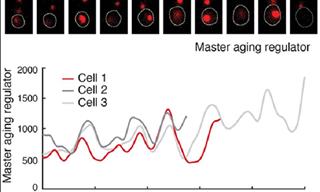Around 1 billion people in the world like chocolate and more than half of them favor chocolate over other sweets. For most of these people, chocolate is a guilty pleasure that should only be reserved for the rare special occasion. This may soon change, as it turns out that compared to other sweets, chocolate may actually have the upper hand due to its beneficial effects on heart health and the cardiovascular system.
Not only is chocolate, and dark chocolate in particular, full of beneficial nutrients in comparison to other sweets, it also contains much less sugar. Here’s how dark chocolate can help your heart, and a review of the research to back these claims.
The Beneficial Effects of Dark Chocolate on Heart Health
Chocolate gets all of its health benefits from the cocoa bean. In order to turn raw cocoa beans into chocolate, they are first fermented, dried, and roasted. After several steps of processing, cocoa butter and cocoa powder are derived from the cocoa beans - the two main ingredients of chocolate. Cocoa powder contains the highest concentration of beneficial plant substances, hence, the more of it chocolate contains, the healthier it is.
Dark chocolate consists of 50-90% cocoa powder, some cocoa butter, and sugar. Milk chocolate, on the other hand, consists of just 10-50% cocoa powder, cocoa butter, milk, and sugar according to Harvard. Compared to dark chocolate, milk chocolate contains a lot more sugar and much less cocoa powder. Therefore, dark chocolate will be more beneficial for one’s health.
But what specific nutrient makes cocoa powder so healthy for the cardiovascular system and the heart specifically?
These benefits are derived from the antioxidants present in cocoa beans. Antioxidants are capable to prevent and repair cell damage, which is how they are capable of reducing one’s risk of developing heart disease. The specific antioxidants present in chocolate are called flavonoids, and they are present in many various plant foods, such as tea, apples, and even citrus fruit. These flavonoid antioxidants are capable of lowering blood pressure in people suffering from hypertension.
One specific subgroup of flavonoids called flavanols are found in especially high concentrations in dark chocolate, and they are notably recognized to benefit heart health. According to a 2017 study, published in the Journal of the American Heart Association, foods high in flavanols like dark chocolate, almonds, and cocoa are capable of lowering one’s risk of coronary artery disease.
The participants in this study had a typical American diet, but with an addition of almonds and dark chocolate. The antioxidant content of these foods has successfully reduced the risk of heart disease by lowering the levels of the bad (LDL) cholesterol in the blood, that clogs up the arteries and causes atherosclerosis. Therefore, including dark chocolate and other foods high in flavonols, such as almonds, can benefit your heart health in the long run.
How Much Chocolate Is Too Much?
The fact that we can enjoy our chocolate without feeling guilty is certainly great news, but doctors point out that we shouldn’t overdo it either, or else it may just end up being too much of a good thing. There is no recommended amount of chocolate you should be eating every day, as even dark chocolate can be quite high in calories. Therefore, simply play it by ear and enjoy a bit of chocolate when you’re craving something sweet. Just make sure that the amount of chocolate you eat won’t exceed your daily caloric needs.
If you do need a more specific measure, though, most research papers list dosages of between 43 and 50 grams (1.5-1.4 oz) of dark chocolate per day. In addition, nearly all papers use dark and not milk chocolate in the studies because it’s higher in antioxidants and lower in sugar and hence is considered healthier. For even greater benefits for the heart and blood pressure, nutritionists recommend also including other flavonol- and flavonoid-rich foods in your diet, such as almonds, pistachios, green tea, grapes, berries, scallions, and lettuce.
Share this article with those who like chocolate!
 Go to BabaMail
Go to BabaMail



























